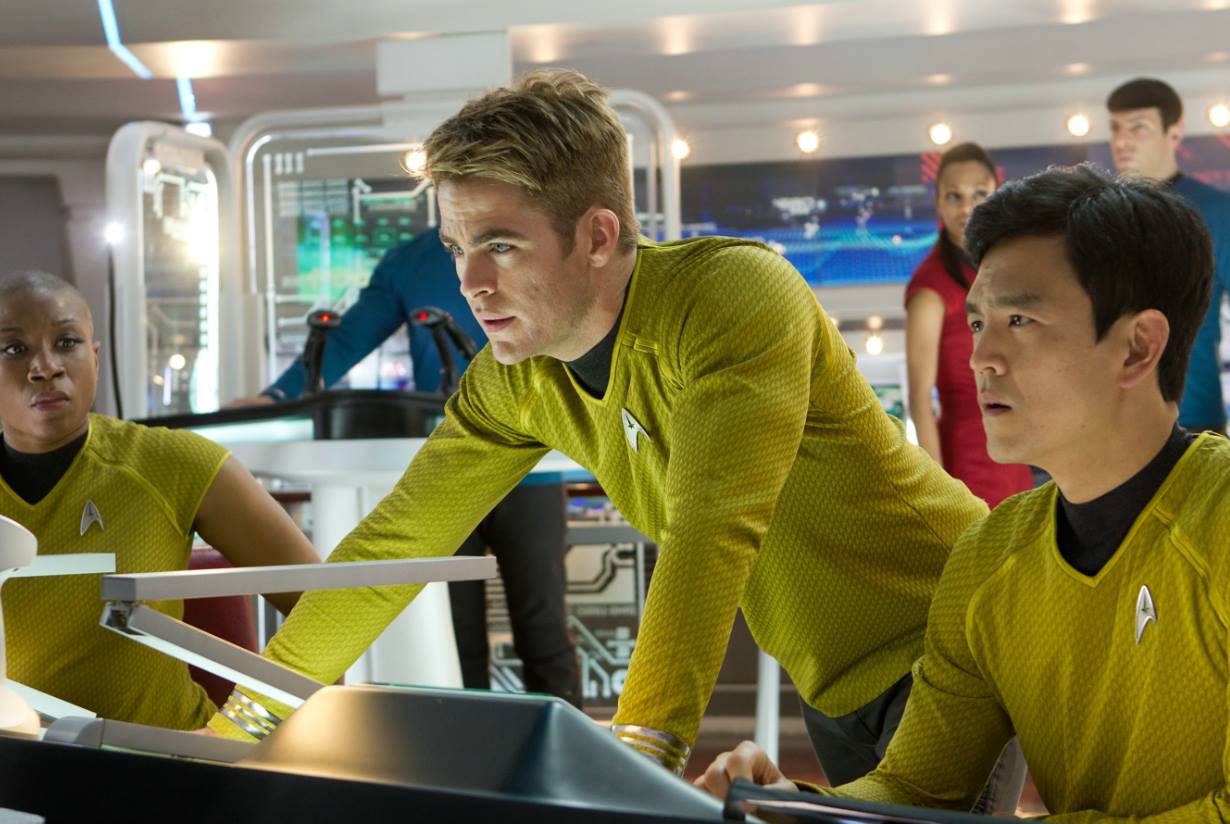3 things Hollywood can tell us about the future
La La Land's futurists sometimes do get it right

A free daily email with the biggest news stories of the day – and the best features from TheWeek.com
You are now subscribed
Your newsletter sign-up was successful
When Aaron Marcus watches science-fiction movies, he looks for the stuff other viewers see as background: the slick computer screens, the gadgets they plug into, the machines they use or that use them.
Marcus is a graphic and user experience designer who was one of the first in his field to use a computer, so he has a particular appreciation for the tipping points of technology. Hollywood's visions for 2050 and beyond, he said in an interview with The Week, can often seem like "advanced product placement" for technology that hasn't been invented yet.
He and other scholars have looked closely at decades of American-financed sci-fi films, from escapist action flicks to sober galactic tales, to analyze filmmakers' predictions. And, increasingly, they have been able to draw lessons from Hollywood about what we might expect for the future.
The Week
Escape your echo chamber. Get the facts behind the news, plus analysis from multiple perspectives.

Sign up for The Week's Free Newsletters
From our morning news briefing to a weekly Good News Newsletter, get the best of The Week delivered directly to your inbox.
From our morning news briefing to a weekly Good News Newsletter, get the best of The Week delivered directly to your inbox.
Below are three of Marcus' and other futurists' observations about what life might be like in 2050 and beyond, gleaned from some movies that probably got it right — and some that didn't. (There are some mild spoilers.)
The UX of the future

For many viewers, the hand gesture interface used by Tom Cruise's future policeman in Minority Report was a wonder of user experience design when it was unveiled in 2002. But Marcus said that a better example of gestural technology might be seen in the alien technology featured in 2009's District 9.
In one scene, he said, the aliens interact with a series of computer screens in a "beautiful ballet of gesture and instrument control." Their commands are graceful and effortless, he said, and show the ideal for a computer system governed by movement, a trend currently dominated by the "pinch and swipe" interface on smartphones and tablets.
A free daily email with the biggest news stories of the day – and the best features from TheWeek.com
"It shows what it would be like having a really articulated gesture system that could respond," he said. "All of the meaning is in the movement of the fingers, not so much the large body movements. That was a depiction of such a glorious capability of gestural language in human-computer interaction."
What will robots look like?
In Her, Scarlett Johansson's disembodied Samantha becomes an addictive companion for Joaquin Phoenix's Theodore in a gauzy future Los Angeles. Marcus noted that Samantha's demeanor reflects a Western, predominantly male fantasy, and he wondered what future robots will look like when created by other cultures, particularly in the fast-growing tech sectors in China and India.
More and more, Marcus said, manufacturing will likely start to invert the traditional Western-dominated relationship, and consumer goods — even robots — created for a predominantly American or European market will now be created for consumption by Chinese and Indian consumers at home, or for sale to the West. No longer will China, for example, simply provide the manufacturing heft to build a new iPhone. Instead, they will design and create new products from the ground up, he believes.
"The next generation of technology will be designed in China and India, not just produced there," he said. "They are not only going to make things, but are going to think them up, make them, and sell them."
Even in the future, technology will drive you crazy
The 2009 reboot of the Star Trek franchise showed a gossamer and clean future of streamlined technology, until, of course, the computers stopped working. Designer Christina York at User Experience Magazine picked up on a scene in which a frustrated Ensign Chekov must repeat his commands several times in order for his starship's artificial intelligence to decipher his Russian accent.
"On an intergalactic ship with crew from all over the universe, it might be reasonable to expect that a voice-commanded system could handle inflections, accents, or other vocal variations," they write. But any iPhone user frustrated by Siri's inability to understand them would appreciate Ensign Chekov's problems.
The issue, York argues, is that "pain points" — moments where technology confuses, frustrates, or slows down the user — are inevitable in technology, and not always because the technology itself doesn't work. Sometimes, they argue, it's the user that is the real source of the problem. As long as people will use technology, thus, there's room for misuse and confusion.
Matt Hansen has written and edited for a series of online magazines, newspapers, and major marketing campaigns. He is currently active in press freedom and safety research with Global Journalist Security.
-
 Crisis in Cuba: a ‘golden opportunity’ for Washington?
Crisis in Cuba: a ‘golden opportunity’ for Washington?Talking Point The Trump administration is applying the pressure, and with Latin America swinging to the right, Havana is becoming more ‘politically isolated’
-
 5 thoroughly redacted cartoons about Pam Bondi protecting predators
5 thoroughly redacted cartoons about Pam Bondi protecting predatorsCartoons Artists take on the real victim, types of protection, and more
-
 Palestine Action and the trouble with defining terrorism
Palestine Action and the trouble with defining terrorismIn the Spotlight The issues with proscribing the group ‘became apparent as soon as the police began putting it into practice’